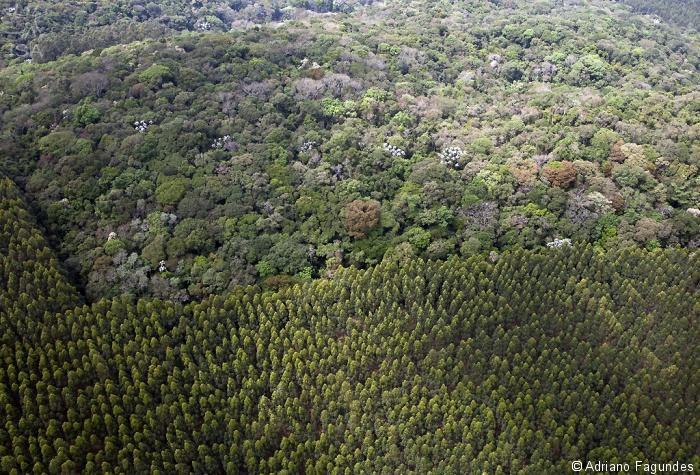Commercial plantations for carbon capture threaten tropical biodiversity

Commercial plantations for carbon capture threaten tropical biodiversity
The climate crisis is leading to a boom in commercial tree plantations in an attempt to offset excess carbon emissions. However, a new study suggests that these plantations may come with costs to biodiversity and other ecosystem functions.
The study authors, researchers at the University of Oxford and the University of Texas at Austin, argue that carbon capture tree plantations are often monocultures, meaning they are planted with just one species of tree. This can lead to biodiversity loss, as plantations support fewer plant and animal species than natural ecosystems.
Additionally, tree plantations for carbon capture can directly degrade ecosystems by reducing stream flows, depleting groundwater, and acidifying soils.
“The current trend of carbon-focused tree planting is taking us along the path of large-scale biotic and functional homogenization for little carbon gain,” the authors write. “An area equivalent to the combined total area of the US, UK, China and Russia would have to be forested to sequester a year’s worth of emissions.”
The study analyzed data from 184 studies on the impacts of tree plantations for carbon capture. The authors found that plantations are often less biodiverse than natural ecosystems and can directly degrade ecosystems.
In one study, in the Brazilian Cerrado savanna, a 40% increase in woody cover reduced plant and ant diversity by approximately 30%.
In another study, in the Congo rainforest, tree plantations for carbon capture reduced stream flows by 25%.
The authors argue that even ambitious commitments to carbon capture plantations will be limited in their ability to capture carbon.
“An area equivalent to the total combined area of the US, UK, China and Russia would have to be forested to sequester one year of emissions,” the authors write.
They say there are considerable financial incentives for private companies to offset their carbon emissions by investing in carbon capture and that the boom in carbon capture plantations is being driven by money, not ecology.
“Compared to parameters such as biodiversity and ecosystem services, carbon is easy to measure and monetize,” the authors write. “But overemphasizing the benefits of planting trees for carbon capture ‘may disincentivize the protection of intact ecosystems and may lead to negative trade-offs between carbon, biodiversity and ecosystem function’.”
The authors suggest that public policies should prioritize the conservation and restoration of intact ecosystems, which are more biodiverse and provide more ecosystem services.
Reference:
Trends in Ecology and Evolution, Aguirre-Gutiérrez et al., “Valuing the functionality of tropical ecosystems beyond carbon” https://cell.com/trends/ecology-evolution/fulltext/S0169-5347(23)00223-9
[ Se você gostou desse artigo, deixe um comentário. Além disso, compartilhe esse post em suas redes sociais, assim você ajuda a socializar a informação socioambiental ]
in EcoDebate, ISSN 2446-9394
A manutenção da revista eletrônica EcoDebate é possível graças ao apoio técnico e hospedagem da Porto Fácil.
[CC BY-NC-SA 3.0][ O conteúdo da EcoDebate pode ser copiado, reproduzido e/ou distribuído, desde que seja dado crédito ao autor, à EcoDebate com link e, se for o caso, à fonte primária da informação ]